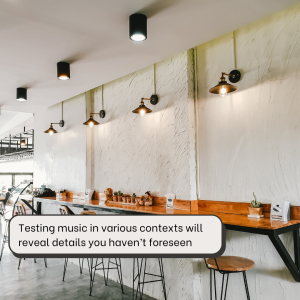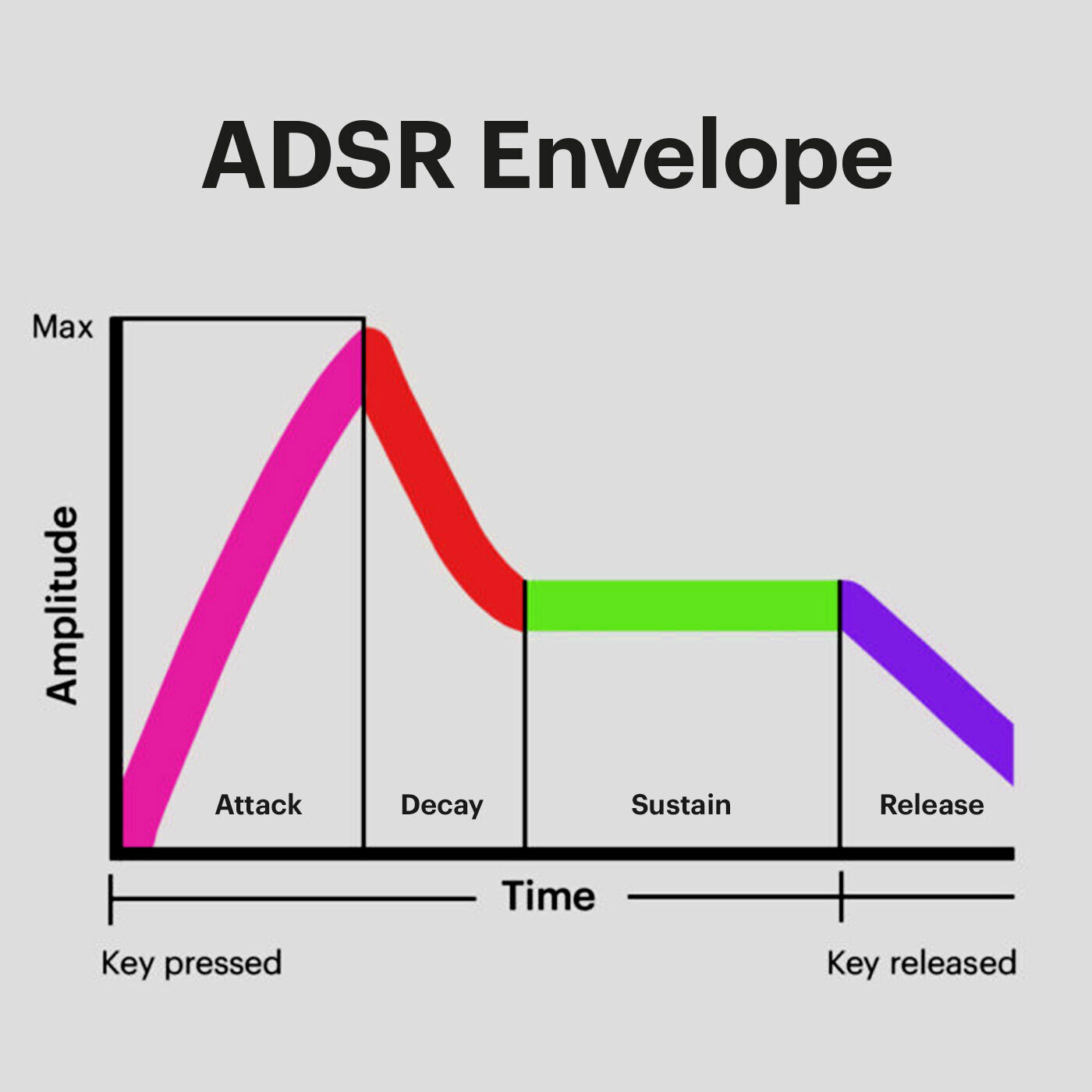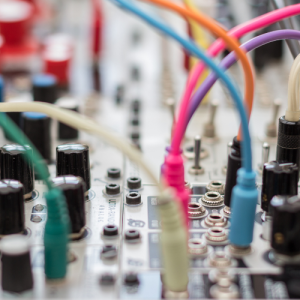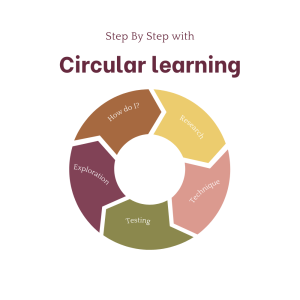Self Promotion And The Music Business
There’s something weird going on at the moment with the music business. I’m unsure where to point fingers, but I’ll explain what I’m seeing, and perhaps you’ll understand what I mean.
As you know, I’m not new to music making or the business. My first record was out in 1999, and since then, I’ve seen the business change much, going through mutations, transformations, and various crises. From the whole peer-to-peer system, Netlabels, and music piracy to the appearance of streaming services and the almost crash of vinyl record sales to the huge boom.
As they say in Buddhism, change itself is the only thing that doesn’t change.
Looking at how things are going at the moment, we have many options, both for making music and consuming it. We’re being almost feed fed to new music multiple times a day. It’s hard to keep up and dive deeply into the music because we’re chasing everything we might miss. 2024 is the first year I bought plugins and things, and then the week after, I completely forgot about them because something else came up. It’s hard to think there was a time when we’d see new interesting audio tools coming every 3-6 months.
For many musicians, this situation raises multiple questions as the challenge of being heard and seen becomes more than a puzzle. For many newcomers, being able to finish a song and then publish it with a few clicks motivates them to enter the electronic music world. There’s a brutal awakening down the road when there are not many results.
In the past years, we’ve been sold that we could reach out to the entire world with the abundance of music promotion options available on the market. But it is clear that after some experimentation, these false premises left us a bit lost on what those tools are doing. James Blake even said he couldn’t reach out to his fans, so he started his platform. He’s not wrong, though, because when one posts to their fan, it seems like social media are trimming the size of people who will see it to a bare minimum. I’ll see an artist share their new release multiple times a day, and the number of likes I see is often around 10, sometimes more if the artist is widely known. I have 17k followers on Soundcloud, yet only 10-20 will listen when I post a song.
The numbers don’t mean anything anymore.
It seems that releasing music is making people shrug. It is no longer special unless you have a real following of caring people.
Let me summarize a few points that could help anyone with music promotion. In the last six months, I’ve worked with many clients on taking new approaches to their music, and so far, I’ve seen some encouraging results.
Immediate Promotion
 The first step to promotion is to understand who your music is for. In electronic music, it is often, in the end, for DJs. Technically, those are your clients and the bridge between yourself and the public. If DJs aren’t your bridge, you need to sit and find out who your promotion proxy is. Perhaps it’s radios or blogs.
The first step to promotion is to understand who your music is for. In electronic music, it is often, in the end, for DJs. Technically, those are your clients and the bridge between yourself and the public. If DJs aren’t your bridge, you need to sit and find out who your promotion proxy is. Perhaps it’s radios or blogs.
Whoever it is, you need to be able to pinpoint locally and in your surroundings who can promote your music. In this phase, the focus of your promotion is that you must avoid promoting your music, yourself, directly to the masses. The soapbox promotion method is not a good one. It is the opposite of the word of mouth promotion. We all know that word of mouth works.
TIP: There are many coffee shops, yoga studios, or other public places that are open to playing music by local artists as a way to give them a first try.
While this might initially seem counter-productive, it is yet what I’ve seen working the best. In a past post, I was relating to the Circle of 5 method, where you need to have people test your music for you and pass the word around.
I’ve been suggesting that people contact DJs to pass on their music. This can be demanding for networking as you must use social media to get in touch. From what I’ve seen lately, using Instagram seems to be a good way. Soundcloud is dead, but it works for finding talent and checking how to contact artists. That said, DJs are always looking for new music, and having the chance to discover talent is something they all want. Using Bandcamp is also another solid way of finding labels and artists and discovering music that could be similar to what you make.
The point is that you want your music to be played and tested in context. Something that drives people crazy, especially DJs, is hearing a song in a set and being unable to find out what it is because you can’t Shazam it. This is why promoting your music that way can create a buzz. That method is called Shadow presence. It’s a derivative of artists who use anonymity to create some mystery
The immediate promotion dynamic’s way is to invert the communication flow; You want to bring people to you instead of running after them.
I’d encourage you to use this method to communicate with whoever you contact.
- Whenever you contact someone, don’t drop a link to your music in the first contact. Don’t sound like a vacuum salesman; be human first.
- Establish a friendly conversation, get to know the person, be polite and explain your intention of networking.
- Ask permission to send music. But first, do your homework and make sure your music fits the artist’s music tastes/direction.
These tips for communicating with DJs are what you’d use with a label. They’re pretty much the safe list approach that makes it possible as you’re not seen as intrusive. But basically, just use these three steps through your career to avoid issues in general.
Labels vs Self-Release
This is probably one of the topics I discuss the most with clients. Too often, I get clients who just finished a song, and their first idea is to send it immediately to a label. What baffles me about this is:
- The song has never been tested. Songs need to be played by a few experts to see if it fits the market.
- The song never got played in a club. If your music is club-oriented, it needs to be played out to see how it fits a set, touches the crowd and fits among other songs of the same genre.
- The song was never peer-reviewed. Music has to be heard by artists to get some feedback.
For many, the idea that every song should be promoted, sent to labels, or released is a validation-seeking exercise. They are completely disconnected from the music release process, ultimately filling the market with space-filling music. Releasing music means you want to commercialize the song(s), and the promotion must be done before.
You commercialize music because there is a demand for it. If you commercialize music to promote it, it will compete with other music (promoted properly) on the market and be lost at sea. Even more prominent artists go through a routine check before releasing their music. Some who don’t might create a backlash with their followers or the press.
The best approach to establishing a relationship with your music’s promotion is to develop patience first. Labels are there to facilitate the commercialization of your art, but there is leverage work of consolidating your online image and making your music solid. Once you have set yourself, partnering with a label will be smoother. They will get you in touch with a community, have channels of sale, and push you through their promotions. But you need a basis first.
Conversely, some people jump quickly into self-release without understanding the consequences or having a solid basis. Before going there, ask yourself if someone mentioned they would like to buy your music. If someone wants to buy it, you can self-release it because that is how you sell it. However, self-release is not a helpful promotion method.
There is no rush or need to release music whatsoever. A release doesn’t set any standards and it doesn’t make you more of an artist than you are already.
It’s not because your music is up for sale that it will sell. I often see clients who immediately put their music on Bandcamp and have two or three sales over a few years. This doesn’t look good and can be interpreted as unprofessional by industry professionals.
Mainly for these points:
- It makes you look like you have no network or support.
- It gives the impression that you’re not doing your self-promotion properly.
- It can give the impression that there’s something off with your music.
- It will mostly make you look like a hobbyist more than a pro or semi-pro.
That said, I would refrain from trying that.
Instead, keep your music to yourself and people who want to play it as a way of building yourself a network. People who succeed mostly can say they made it happen because they knew the right people at the right time. Yes, there is an element of luck, but the chance factor is multiplied by the number of influential people you know.
Direct Action
If we think that one of the artists’ goals with their music is to be heard, it is easy to be tempted to reach out to all the promotion options. Yes, sites like HypeEdit, Groover, and others will perhaps provide a window of possibilities for getting through. But then again, it might not be happening. That desire can divert you from the underlying need for validation. Once that is met, you will feel more comfortable waiting for things to happen. Therefore, what can make a difference is what you can control. This involves a series of different things.
The first action you can take to promote your music is to pass it on to interested people. Whether that person uses your music for DJ sets, a podcast, or to play in a local coffee shop, all these micro-actions make your music move. I emphasize working on what you can control.
Quality in your music.
Whatever and however you make music, a certain level of professionalism will pay off in how you sound to others. Some clients will book me for a mix and master, but the song does not have much content or depth. While solid production certainly can be impressive, people usually remember the hook and feeling coming from the song. If the production is a distraction from the idea, that might say that your hook is weak.
Quality combines several elements: sample quality, hook catchiness, idea articulation, execution, and development. That will eventually be the topic of a whole post. Still, if I had to sum it up, I’d say to make sure you use quality samples (not MP3 or YouTube rips) from sites, and if you find a good way to integrate it in a pattern that develops appropriately, then you’ve done a large part of the assignment.
Quantity and Consistency.
This has been covered multiple times in the blog, but I’ll reframe it again (until people know it by heart). To find fun and exciting ideas, you need to dig for many. The first one you see might or not be “good,” which will only be more apparent with time. This means starting new ideas every day. Make a tons. The usual ratio of gems is about 3 to 5%, good ones will be maybe 10%, and the average is 20%. So, if you make 100 new ideas, you will get a rough idea of how it will go. If this can help, I will start with about five ideas daily (for the last 20 years), but only a tiny amount will be released.
The quantity is necessary because you will be exposed to exploring multiple techniques, so you won’t repeat yourself. Eventually, you’ll end up with a lovely catalogue of songs and ideas.
Regular Networking.
The name of the game is networking. Your success is directly related to who you know and how you position yourself with your local community. Knowing people online is one thing, but having in-person contacts is even better. That has been said enough, and I’ll leave it to this as that is something you control for the most part. I’m aware some cities have fewer communities, and some people do not live in big cities with an active scene. But if you’re serious about what you do, organizing road trips to nearby places and making new friends might be something to add to your vacation plans in the future.









